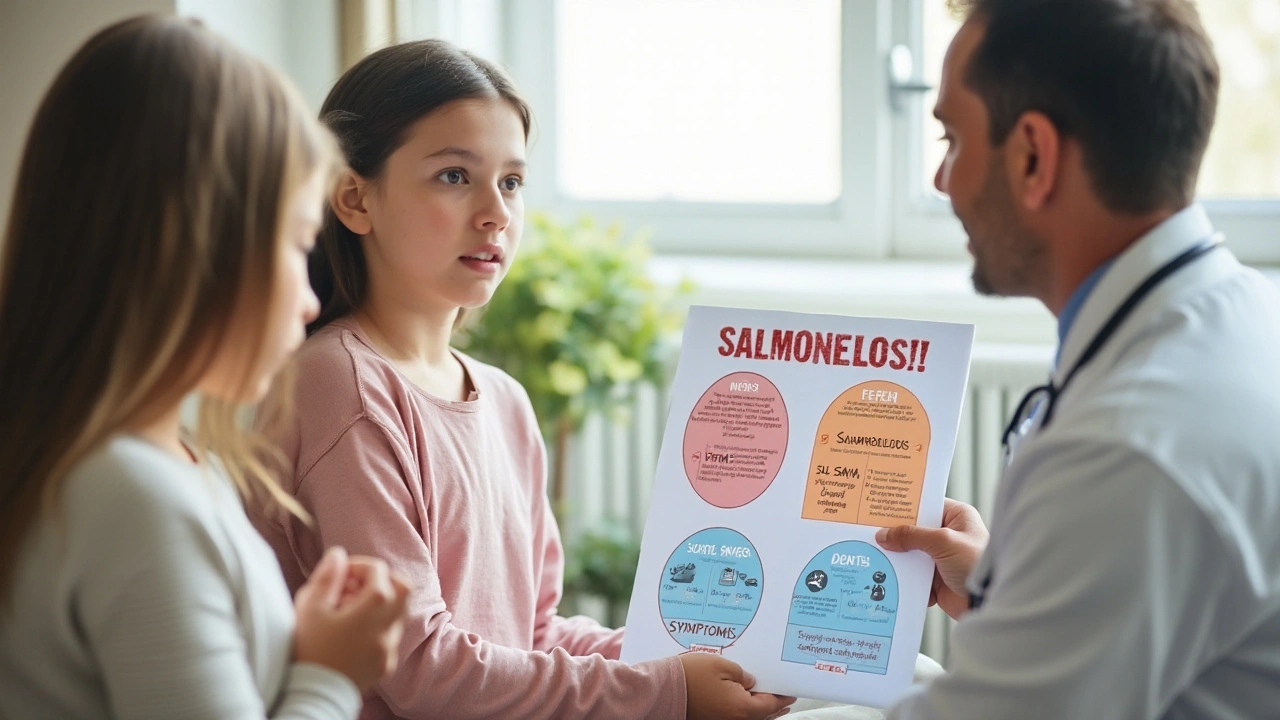Salmonellosis: What It Is, How to Spot It, and Ways to Stay Safe
Ever gotten a sudden stomach upset after a meal and wondered if it was more than just indigestion? That could be salmonellosis – an infection caused by Salmonella bacteria. It’s one of the most common food‑borne illnesses worldwide, but you can recognize it early and act fast.
Typical Signs You Might Be Dealing With Salmonellosis
The first clues usually show up 6 to 48 hours after eating contaminated food. Look for watery diarrhea, cramping, fever, and sometimes vomiting or headache. Most people feel sick for a few days, but the worst‑case scenario is dehydration, especially in kids and seniors.
If you notice these symptoms and suspect a recent bite of raw eggs, undercooked poultry, or unpasteurized milk, call your doctor. They might ask about your food history and run a stool test to confirm Salmonella.
How Doctors Treat the Infection
For healthy adults, treatment is often just staying hydrated and resting. Over‑the‑counter rehydration solutions can replace lost fluids and electrolytes. Antibiotics are reserved for severe cases or people with weakened immune systems because they don’t always speed up recovery.
Never self‑prescribe antibiotics; misuse can lead to resistance. Follow your doctor’s advice, finish the full course if prescribed, and avoid spreading germs by washing hands frequently.
Practical Steps to Prevent Salmonellosis at Home
The good news is most cases are preventable with a few simple habits:
- Cook meats thoroughly. Use a food thermometer – poultry should reach 165°F (74°C).
- Keep raw and cooked foods separate. Store raw meat on the bottom shelf of your fridge to stop drips onto other items.
- Wash hands, surfaces, and utensils. A quick soap‑and‑water wash after handling raw food cuts down contamination.
- Avoid risky foods for vulnerable groups. Pregnant women, kids, and the elderly should skip raw eggs, unpasteurized dairy, and undercooked sprouts.
If you’re eating out, look for restaurants with good hygiene ratings. A clean kitchen makes a huge difference in keeping Salmonella at bay.
When to Seek Emergency Care
Most cases resolve without hospital visits, but watch for warning signs: persistent high fever, blood in stool, severe dehydration (dry mouth, dizziness), or symptoms lasting longer than a week. In those situations, head to the ER or urgent care right away.
Quick medical attention can prevent complications like bloodstream infection, which is rare but serious.
Bottom Line: Stay Informed and Act Fast
Salmonellosis may sound scary, but knowing the symptoms, treatment basics, and prevention tricks puts you in control. Keep your fridge clean, cook foods properly, and hydrate if you feel sick. And remember – when in doubt, talk to a healthcare professional.

Understanding Salmonellosis in Children: Essential Tips for Parents
Salmonellosis is an infection caused by the Salmonella bacteria, which can impact children significantly. This detailed article provides parents with essential information on recognizing symptoms, understanding transmission, preventive measures, treatment options, and recovery advice. Stay informed to keep your children safe and healthy.